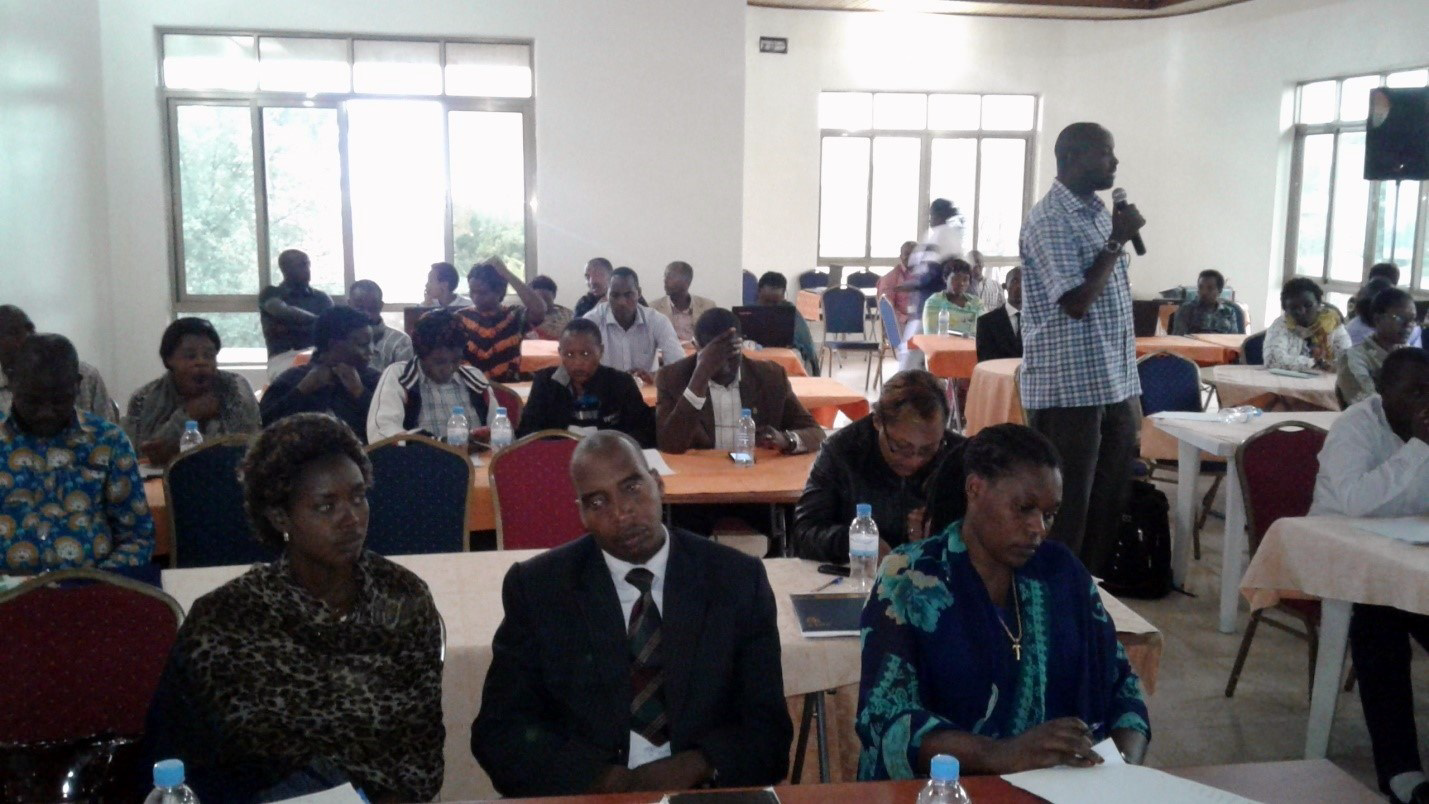Towards inclusive participation and gender equality in Local Economic Development
The Rwandan Association of Local Government Authorities (RALGA) isan important partner of the Rwanda Decentralisation Support Programme (RDSP). The organisation aims to assist local governmententities in achieving their mission, complying with principles of good governance and decentralization.
Local Economic Development (LED) is at the heart of RALGA’s mandate. LED Policy Analyst Vincent Rutaremara explains: “The absolute objective of LED is to improve the standards of living for all. At RALGA, we want to develop income generating activities and create employment. The ultimate goal is that the situation of each member of the local community improves.”
Inclusive LED Processes
RALGA - with the support of RDSP - is promoting inclusive participation and gender equality in LED processes. “In order to be effective, LED must be inclusive. It is a multi-sector process which involves many actors: government representatives at district level, private sector, civil society organizations, community members, women, youth, disabled people, etc. All those actors have views and opinions that need to be taken into account to foster economic development at local level” states Vincent Rutaremara.
RALGA recently conducted a study to determine whether the environment in the 8 pilot districts of the RDSP programme is favourable to the participation of various stakeholders in LED-related decisions. The study has helped RALGA to better understand which factors are enabling or hindering the optimal participation of stakeholders.
Mr. Rutaremara summarises some of the conclusions: “The Rwandan state has an important role to play by putting in place the institutional framework, the system enabling different stakeholders to participate to the planning and decision-making processes at local level. But each actor also needs to understand his role and have the capacities to contribute and engage in a constructive way. This will guarantee ownership of the decisions by the community and increase the chances of success of a policy during the implementation phase.”
Policy dialogue & RALGA's commitments
Capacity building, LED awareness activities and dissemination of information are essential if we want to involve people at local level. After the study, RALGA conducted a broad-based policy dialogue in order to confront the stakeholders with some of the findings. “It is important that local actors understand what we are looking for and commit themselves to inclusive LED processes. They need to be able to reach out to the group of people they represent and engage them in one way or another.”
RALGA wants to reactivate and give a more important role to the Joint Action Development Forums. This mechanism gathers all the LED actors at district level. “We need to make sure that the forums are more inclusive and active.” In addition, RALGA is committed to develop the capacities of key stakeholders essentially representative from the private sector, from women’s group and the youth.
“At the end, we want to have a consolidated view that can accommodate each and every category of people in the districts. But some representatives lack the necessary knowledge and the will to implement inclusive LED processes. This needs to change. We will also make sure that gender mainstreaming is systematically integrated into LED. Eventually, we also commit ourselves to disseminate LED policies in Kinyarwanda in order to make sure people are aware of what they can achieve and develop at local level” concludes Vincent Rutaremara.
Laatste nieuws van dit project
Geen nieuws

